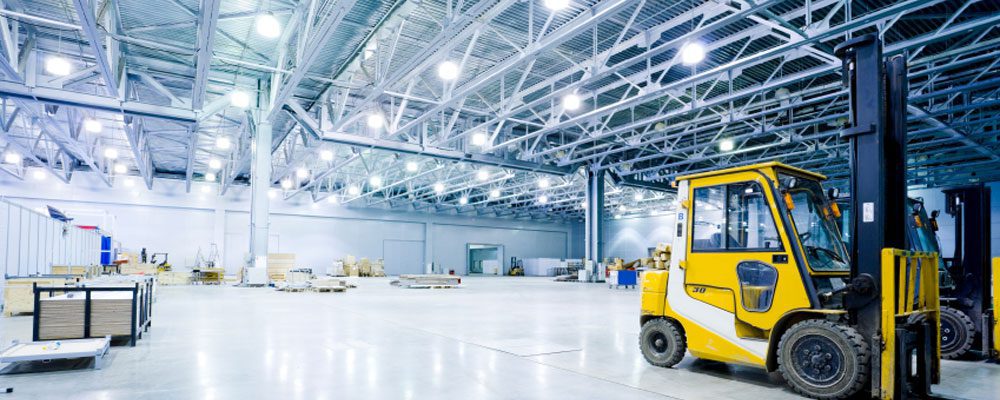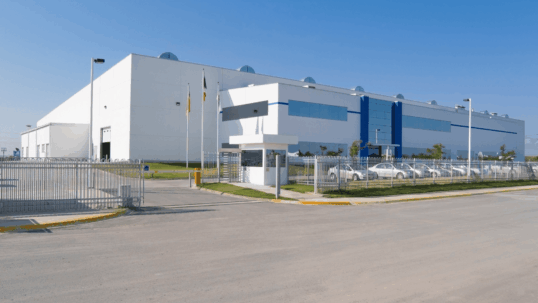Going green is the practice of reducing your environmental impact while improving efficiency, comfort, and long-term economic performance through sustainable choices in energy, materials, and everyday operations.
For businesses and communities, going green means lowering energy consumption, cutting carbon emissions, saving money, and creating healthier, more appealing spaces for employees, customers, and residents.
In this article, we’ll look at why going green matters, how the global shift toward clean energy is already underway, why efficient lighting—especially LED lighting—is such a powerful part of the solution, real-world case studies from cities and businesses, simple and creative ways to start, and how Relumination helps organizations turn “green ideas” into measurable results.
Why Going Green Matters: Environment and Economy
As we become more and more aware of how the actions of human beings and our wasteful tendencies are affecting the earth, it becomes obvious that we need to clean up our act.
Reducing the amount of unrecyclable materials we use, recycling what we can, and reusing what we can’t are some excellent ways to help make our planet a healthier and greener place.
At the same time, the global energy system is changing fast:
- We’ve heard a lot about the U.S.’s attempts to go green. The solar power industry has been growing at an increased rate. Renewable energy capacity both locally and across the world is higher than it’s ever been before.
Research from the University of Colorado suggests that sometime around 2030, the United States could get 78 percent of its power from renewable resources, assuming we make the right economic and political choices. Installing enough green energy to meet our needs (or a little over 3/4 of our needs) would mean steadier energy costs, more jobs in green energy fields, and energy independence. - For 200 years, any growth in the economy came with a growth in emissions. But for two years in a row, world emissions have remained relatively stable while the economy increased. This is due, in large part, to how many countries have embraced green energy on an industrial scale.
So, is it possible to go green without compromising our lifestyles or crashing the economy? The answer we’re seeing in the real world is: yes. Going green is quickly moving from “trend” to expectation—from customers, regulators, and investors.
How Much Does Going Green Cost: Can Be Cheaper Than You Think
We are in the midst of a “green” revolution. With more and more companies altering their business practices to be more sustainable, we can predict that being green will not just be a trend over the next few years, but will develop into an expectation.
But “green” doesn’t have to mean “expensive.”
Earth FX’s owner, Jim Bolger, installed LED lighting, geothermal energy, heating and cooling controls, and solar panels, which cost him $45 per square foot. The building is now consuming 70% less energy. That’s a deep retrofit.
You don’t have to start there.
There are ways you can improve your business practices starting tomorrow morning. In Kate Rogers’ article, “Baby Steps for Going Green,” she lists several cost-efficient ways to be more sustainable:
- Be sure your windows are properly sealed.
- Consider geothermal heating if your building runs on oil or electricity. Geothermal heat pumps rely on heat from the Earth to provide air conditioning, heating, and hot water.
- Use less paper. Some businesses are intimidated by going paperless, but it’s the way of the future. Electronic signatures are just as official as paper signatures.
- Recycle your fax machines and send documents online by PDF. Fax machine costs are expensive when you take into consideration costs for printer cartridges, paper, and another phone line. They also waste tons of energy.
- Install air conditioning and heating controls.
- Don’t be afraid to make a small change to begin with. Anything from recycling to buying local to having your building insulated is a start.
And one of the easiest and most impactful starting points?
Efficient lighting.
Why Efficient Lighting Is an Essential Part of Greening Your Business?
Energy costs are a constant concern regarding a business’s overhead. You need to run the freezers, keep your heating going during the winter, and perhaps most noticeably, keep your lights on.
Lighting can account for a surprisingly large share of electricity use, and that makes it a prime target for going green.
Green Credibility
Eco-friendly business practices are a growing concern in today’s business world, and going green is quickly becoming a necessity for any company that wants to stay in business.
Customers and potential customers are more likely to view your company as socially responsible if they perceive that you’re doing a good job caring for the environment.
Energy efficient lighting is one of the most visible and easily identifiable greening strategies for your business, so it can take your business up a notch or two in the eyes of your customers.
Energy Costs and Fixture Counts
Efficient lighting costs less in the long run. This is partly because of lower energy consumption and partly because an efficient lighting plan can help you save money by reducing the number of lighting fixtures used. Calculating and installing the optimal number of bulbs, or removing unnecessary bulbs or fixtures, represents pure gain in lighting efficiency.
A 300-watt high bay LED provides the equivalent of a 1000-watt metal halide high bay in terms of light. That 700 watts of difference can have a big impact on a business’s light bill as well as on the strain it would otherwise put on the local power grid.
If you take a full-size warehouse or large-scale store, that 700 watts of savings per high bay can translate to a lot less power and a lot less money spent on overhead.
Maintenance and Employee Well-Being
The working lifespan of energy-efficient lighting is considerably longer than that of traditional lighting. This translates directly into lower overall maintenance costs, including bulb costs and labor costs. In addition, using fewer lighting fixtures means a broken fixture will occur less frequently.
There are many benefits of becoming a “Green” enterprise. Some of the advantages are apparent, and others may be less obvious. For instance, an energy-efficient lighting plan may go unnoticed socially.
However, the implementation will prove your business to be socially responsible.
Still, light commands attention in any room, proving that we perceive light by the amount of its presence, its quality, and its color characteristics. Lighting is also a key factor in your employees’ health and well-being, and can be done in an environmentally responsible way.
Relumination acknowledges how light is perceived. We know an energy-efficient light’s lumen value (or the measurement of the light output).
As an experienced lighting company, we also understand that different activities and/or places require different lighting levels; we can determine whether a light is bright, dull, or if the quality of the light presents a glare; and we are knowledgeable of a light’s frequency and wavelength.
Why is LED Lighting the Fastest Way to Go Green and Save Green
Replacing your current lighting with LED (Light-emitting diode) lighting technology can be a great way to help your business go green. The benefits to going green are numerous. While LED lighting costs a little more than regular lighting, the money-saving benefits far outweigh the initial investment.
1. Money Savings and Energy Reduction
LED bulbs are created to burn at a lower wattage, so making the switch will greatly reduce your power bill. When compared to your average incandescent light bulb, an LED light bulb uses roughly 80 percent less power. In many applications, LEDs use 50–90% less energy than fluorescent or metal halide lighting.
Energy reduction is two-fold. You not only save money on your power bill, but you are greatly impacting the environment by reducing the amount of energy your business is using—especially in facilities where lights run long hours.
2. Extended Life and Lower Maintenance
LED lights are created to burn more than double the time of a regular incandescent light. In fact:
- An incandescent light bulb only lasts about 1,500 hours.
- A CFL can provide up to 10,000 hours of light.
- An LED’s lifespan is often 50,000–60,000 hours, and many industrial products are rated even higher.
LED lights last years longer than traditional light bulbs do, which makes them a solid, long-term investment. This allows for less replacement and will save you time and money—especially for hard-to-reach fixtures that require lifts or after-hours access.
3. Recyclable and Cleaner Construction
With old lighting, there is a proper way that you must dispose of them, due to the way they are made. Fluorescent lamps, for example, contain mercury and can’t simply be thrown in the trash without environmental risk.
LED lights are made to be recycled; this has a great impact on the environment. They do not contain mercury or emit harmful UV radiation, and their long life means fewer fixtures manufactured and transported in the first place.
4. Less Heat, More Comfort
LED lights don’t put out heat the way traditional bulbs do, which means there’s no need to adjust your temperature control because of the lighting. In retail spaces, offices, casinos, and warehouses, this can translate to real HVAC savings and more comfortable workers and customers.
Finally, the above listed benefits are just a few of the benefits of switching to LED lighting. Between making the environment better, and saving money, why not switch today? Continuing to use your old lighting is costing you more money and greatly damaging the environment.
Relumination can help. Choosing the best lighting system for your business and your pocketbook isn’t always as simple as screwing in a different light bulb. Sometimes you need to dig a little deeper and make bigger changes.
Our trained professionals have been working with businesses to create savings for years. No matter what a business’s particular situation is, we can come up with a plan to decrease the power you’re using without sacrificing that warm, welcoming glow that keeps customers feeling good while they’re shopping, working, or relaxing.
Real-World Case Studies: Cities and Facilities Going Green with LEDs
Going green with lighting isn’t a theory—it’s happening everywhere from city streets to casino floors.
Parking Garages and Streets: Cities in Texas, Vermont, California & Arizona
You’ve heard it once, and you’ll hear it again from us: parking garages are some of the biggest energy wasters. Many garages are required to have their lights on all day because there is no outside light coming in from other floors, or for safety and security reasons. For a cheaper, brighter, more unified light, operators of parking garages should switch to LED lighting.
- Dallas, Texas is the first major city to replace five of its parking garage lighting fixtures with LEDs. By replacing lighting at parking garages near the Dallas City Hall, Dallas Public Library, Jack Evans police building, the freight terminal beneath Thanksgiving Square, and the Morton H. Meyerson Symphony Center, the city of Dallas will reduce energy consumption by 60%, over 1,700,000 kWh.
- Lumetech already replaced lighting in Dallas County School’s parking lot, which reduces electricity consumption by 505,000 kWh annually. The school will see a savings of $363,000 in maintenance and electricity over the lifetime of the new LEDs.
- In Vermont, the city of Colchester has a ballot initiative to install LED lighting on all of the city’s streets. Colchester would need to replace 780 lamps, costing approximately $500,000. On the other hand, the LED lighting would cost the city 70% less than the lamps they have installed now. The city has applied for and received a few grants so they will not have to increase taxes. The city of Waterbury already installed more than 60 LED streetlamps in the business district, which is saving the city $3,000 annually.
On the West Coast, Pasadena, California, is making some significant changes by installing solid-state lighting in some of its public places:
- One mixed-use complex parking structure replaced its 32-watt T8 fluorescent fixtures with 11.6-watt 4-foot LED tubes. The old fluorescent fixtures gave off an orange-greenish hue, while the new fixtures give off a bright, daylight-looking light. The installation of LEDs reduces carbon emissions by 17,723 pounds each year. The project costs the complex $1,096, but it will see a payback in only seven months and save $1,438 annually on energy costs.
- The Pasadena Central Library replaced 900-watt pendant lamps in the main common areas with LED lamps that fit in place of the metal halide fixtures, preserving the historic look while vastly improving efficiency. The library now saves 788 watts per fixture, equaling thousands of dollars annually in energy and maintenance savings.
Arizona is moving toward becoming more “green” and energy efficient by making changes in its traffic and street lighting:
- Phoenix is installing LED traffic lights at 860 intersections. The new traffic lights will use only 10% of the energy the current incandescent street lights use and will reduce energy by more than 5 million kWh. They will also reduce carbon emissions—specifically 2,500 tons of carbon dioxide, 10 tons of sulfur dioxide, and eight tons of nitrogen dioxide.
- In Gilbert, a pilot program allows the town to brighten and dim street lights individually to reduce energy costs. For example, in the early evening hours, they can gradually turn on, and they can dim in the early morning hours when there is less traffic on the road. There are also plans for “solar blankets” over street lights to save even more energy.
Commercial Spaces: Casinos, Car Dealerships, and Hospitality
Casinos (tribal and otherwise) are going green these days, and it’s not just about focusing on the color of money. Many are switching over to plans to help them save costs and energy:
- The EPA is offering tips on alternate lighting sources, such as retrofitting slot machines with LEDs, and suggesting analysis of other lighting venues like outside signage, parking areas, hotel room lighting, and nightclubs, so more energy-efficient choices can be made. According to the EPA, such changes can show a return on investment in as little as six months.
- One source indicates the Monte Carlo casino in Las Vegas has an electric bill of $5 million per year. According to another source, just replacing the lighting in slot machines with LEDs could mean an 85 percent savings on slot machine energy usage.
Car dealerships are another big winner with LED upgrades:
- A Lexus dealership in Roswell, Georgia, replaced its exterior 750-1000 watt fixtures with Qnuru LEDs. The retrofit reduced lighting costs by 86.6%, and the lamps have 19% more lumen output.
- Emich Volkswagen in Colorado replaced its interior and exterior lights with LEDs. The dealership now consumes 80% less energy and plans to see a return on investment in 18 months from energy cost savings and utility rebates.
- Another Lexus dealership in West Springfield, Massachusetts, replaced its 1000-watt metal halide lamps in the parking lot with 144-watt LED lights (an 86% reduction) and its 322-watt high-pressure sodium pathway lights with 67-watt LEDs (an 80% reduction). The dealership plans to see a return on investment in less than 24 months.
Relumination is proud to announce the completion of the Arena Poker Room at Talking Stick Resort. Partnering with Talking Stick Resort, we worked to reduce lighting-related energy consumption by 80%, saving over 11,500 kWh of electricity annually.
From an environmental impact, a reduction of almost 19,000 pounds of Carbon Dioxide (CO2) is saved from polluting the environment each year. In addition to saving electricity, Talking Stick Resort will also save money through reduced maintenance and facility downtime. The lighting has also been improved, and less heat is generated for the HVAC system to offset.
If you are in the Scottsdale area, be sure to stop in and check out the lighting in the Arena Poker Room. We think you will be impressed.
Agriculture: Greenhouses Going Green
Greenhouses are also discovering LEDs. Purdue University in Indiana recently received a $4.88 million grant to study LED lighting in greenhouses. The four-year project, “Developing LED Lighting Technology Practices for Sustainable Specialty Crop Production,” aims to:
- Make lighting more efficient
- Produce more specialty crops, such as high-wire tomatoes that can grow taller than 20 feet
Because current lighting in greenhouses usually doesn’t reach the bottom of the plant, it will not grow to its full capacity. Researchers think future developments of LED lighting will shine light all over the plant, helping it grow and increasing the amount of tomatoes grown on the plant while reducing energy costs.
LED lighting is an optimal choice for greenhouse owners. Statistics show that greenhouses can save 75% on electricity costs with LEDs. LEDs also give off a cool light, which most plants need to grow, and avoid the excessive heat and buzzing sound associated with fluorescent lamps.
Most LED greenhouse lighting claims to have a lifetime of 100,000 hours, which, if used half a day, will last 22 years.
We hope the researchers in the project at Purdue University make great discoveries that will help encourage all greenhouse owners to switch to LED lighting.
What are Extra Benefits of Energy Efficiency and Smart Lighting?
Energy efficiency is one of the primary priorities for construction companies and large commercial entities.
Even though the long-term savings and reduction in consistent expenses can be staggering, the upfront costs, changes in procedure, or even the extra work required to obtain approval can halt a new initiative in its tracks.
But making your lights more energy-efficient does more than save energy and money.
Security and Controls
One of the easiest ways to reduce energy waste is to ensure that lights turn off automatically when no one is using them.
Motion sensors perform well in areas such as utility closets, restrooms, and individual offices. They power down when no one is benefiting from the light, but turn on when movement is detected.
This also helps with security. You can:
- Keep restricted-access areas better monitored with motion detectors
Send alerts to your security team when unexpected movement is detected - Match up the movement with an employee whose key fob has been active in the area
Because LEDs are instant on/off and dimmable, they pair perfectly with these smart controls.
Attracting Customers with a Focus on Sustainability
Environmentally friendly initiatives, if well-publicized, are beneficial to business as soon as they’re implemented. Many consumers, especially those with access to multiple, competing shops, plan their spending around the businesses they connect with.
Moe’s Southwest Grill is a good example. By incorporating more sustainable practices—CFL and LED lighting, HVAC changes, and greener food offerings like hormone-free meats and organic tofu—they’ve seen higher sales, more customers, and significant savings on maintenance.
Paul Damico stresses that even though the upfront cost may be high, the changes will ultimately save energy and money.
Car dealerships that sell efficient vehicles but also showcase efficient, environmentally friendly lighting send a strong message: we care about efficiency in everything we do.
Casinos that retrofit slot machines and signage with LEDs, and hotels that install eco-lighting in guest rooms, can market their “green” experience as part of their brand.
Going Green Beyond Lighting: Lifestyle and Transitional Technologies
Lighting is one of the most impactful ways to go green, but it isn’t the only one.
Everyday Green Choices
If you’ve woken up and realized what a terrible state our planet is currently in, you probably want to start by doing simple things to be more involved with the environment.
Fortunately, there are all sorts of different and easy ways for you to go green:
- Change your lightbulbs at home. A compact fluorescent bulb (CFL) is a much better choice than old incandescents, consuming about 75% less energy and converting more of that energy into light instead of heat. (And now, LEDs are an even better option in most cases.)
- Recycle your electronics. In 2005 alone, Americans threw away about 5.5 billion pounds of unused electronics. Instead of throwing these things away, take them to your local recycling resource center.
- Repurpose and craft. Take things you already have and create a new purpose for them—like turning old mason jars into candle holders for a spring table.
- Plant an herb garden. This isn’t only an easy and fun way to go green, but the kids will love it.
- Eat a vegetarian meal once a week. It takes about 2,500 gallons of water to produce one pound of beef. Skipping meat occasionally helps your diet and the planet.
- Give your dryer lint to the birds. Birds can safely use dryer lint to make their nests a little more comfortable for baby birds.
As you can see, there are plenty of easy, fun, and creative ways to go green and help to save our earth.
Big Picture: Fossil Fuels, Renewables, and “Transitional” Tech
You can’t turn on the TV, or read a news blog, without hearing about how the world is going green. Solar power is off like a rocket, wind energy is increasingly popular, and reliable green solutions like anaerobic digesters and ocean thermal energy conversion (OTEC) are becoming more widely used.
Fossil fuels aren’t giving up the fight, though. Net Power, for example, is working with a variety of big names in energy to prove that we can burn fossil fuels without releasing any greenhouse gas emissions. Their design:
- Uses pure oxygen instead of air
- Uses a liquid turbine instead of a steam one
- Keeps the CO₂ in liquid form, where it can be easily contained
It’s still a fossil fuel plant, but it’s a cleaner one. The important point not to lose sight of is that these plants still use fossil fuels. Unless we suddenly find something we can do with all that liquid CO₂, then they’re just delaying the inevitable need for green power.2030
That’s why this technology should be looked at as a transitional one—a stepping-stone between where we are and where we need to be.
If inefficient power plants belching emissions into the atmosphere could be streamlined and remade into more environmentally friendly power plants, then it would be a step in the right direction while renewables and efficiency measures (like LEDs) continue to scale up.
How Relumination Helps You Go Green with Light
Relumination is a LED lighting contractor that specializes in helping companies of all sizes reduce their energy consumption, operating costs, and environmental impact through better lighting.
We:
- Analyze your existing lighting system and energy use
- Design efficient LED lighting layouts for interiors, exteriors, parking, warehouses, casinos, dealerships, and more
- Incorporate controls like motion sensors, daylight harvesting, and scheduling
- Understand the technical details: lumen levels, color temperature, glare, frequency, and wavelength
- Help you pursue rebates, grants, and tax incentives where available
- Are a member of the Green Chamber of Commerce and an Energy Star partner
From high-bay warehouses to poker rooms, libraries, and parking garages, we help turn “going green” from an abstract goal into a concrete, measurable reality.
“Green” your enterprise with the right light and contact us.
Conclusion
Going green is about more than slogans—it’s about practical choices that reduce waste, cut emissions, and improve life for people and businesses.
We’ve seen that:
- The global economy can grow without a corresponding spike in emissions.
- Renewable energy and efficiency measures like LED lighting are key to that decoupling.
- LEDs can cut lighting energy use by 50–90%, dramatically reduce maintenance, and improve comfort and safety.
- Cities, casinos, dealerships, greenhouses, and hotels are already saving thousands of dollars and tens of thousands of pounds of CO₂ every year by making the switch.
- Everyday actions—recycling, repurposing, eating one meat-free meal a week, and yes, changing your bulbs—also make a real difference.
Whether you manage a single building or an entire portfolio, the fastest, simplest, and most visible way to go green is to start with your lighting. From there, you can build out to HVAC, building envelope, and renewables.





